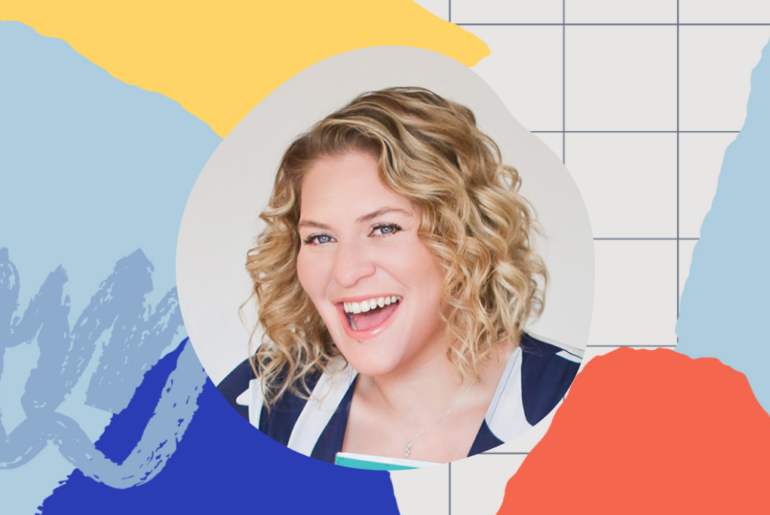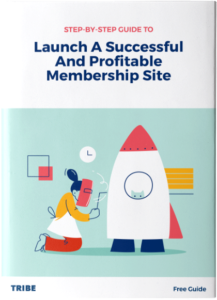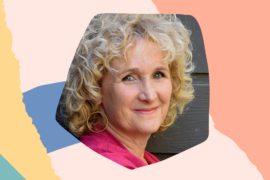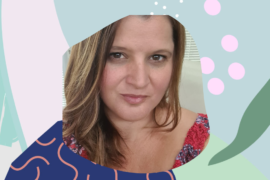At 19, J. Nichole Smith adopted a Great Dane and soon found herself knee deep in the world of pet photography. After a trademark licensing agreement left her with over $50,000 in debt and the brand she partnered with never delivered, she moved into the world of retail. She opened physical brands in Los Angeles and London, but soon discovered that her dream businesses didn’t make her happy.
Now, at Working with Dog, she helps other “petrepreneurs” find their why and build niche brands. She guides them on their personal growth journey, stops them from developing what she calls “Shiny Object Syndrome”, and has helped build thriving businesses successfully and repeatedly across a number of different markets.
Today, J. Nichole joins the podcast to talk about why serial entrepreneurship is a marathon and not a sprint, how to stop fear from getting in the way, and why building a business – and overcoming any challenge in life – helps you understand yourself in ways you’ve never allowed before.
Key Takeaways
- How a trademark licensing agreement to build what she thought was her dream business left J. Nichole saddled in debt – and how she moved past this early setback.
- What J. Nichole did when she discovered that she didn’t love her retail business – and how it led her to finding a corner of the industry she truly loved.
- How the membership model allows J. Nichole to charge for the content marketing bloggers and other people who sell courses have to give away for free.
- Why success is easy, natural, and sustainable when you’re doing the thing you were born to do.
Free Give
FREE Guide – Launch & Grow a Profitable Membership Site
Ready to reclaim your time and attract more monthly paying customers? Our step-by-step guide will show you how to build a membership site that turns your passion into recurring profit. Click here to download!
Memorable Quote
-
“Your business is not your baby. It’s never going to love you back. It’s an experiment. We need to hold it lightly. We need to be able to set it down, tweak, change, and let go.” – J. Nichole Smith
Episode Resources
Transcript
Read The Transcript[INTRODUCTION]
Stu McLaren: There is a big trend brewing that’s revolutionizing the way business is being done. Big companies like Netflix, Amazon, and Apple are jumping on this too but so are thousands of others in all kinds of markets like photography and calligraphy, fitness, finance, meal planning, lesson planning, dog training, and so many more, and they’re doing it by shifting to a recurring revenue model. Hi. My name is Stu McLaren and for more than a decade I’ve been helping tens of thousands of entrepreneurs generate recurring revenue through membership sites. Join our host, Shelli Varela, as she takes you behind-the-scenes to see how these companies are building a thriving tribe that spends with them every single month. Now, let’s get to today’s episode.
[INTERVIEW]
Shelli Varela: J. Nichole Smith, You Can Call Me Nick, welcome to the It’s a TRIBE Thing Podcast, buddy. I’m so grateful you stopped by.
Nichole Smith: Thanks for having me. I’m really excited to be here.
Shelli Varela: I loved our pre-conversation as I always do and there’s so many amazing juicy takeaways. So, I don’t want to take up too much time. I would so love it if you’d be so gracious to share your story of how you came to be the membership site owner you are today and what was the root of that story when it started?
Nichole Smith: You must hear such great stories about the winding journey we take as entrepreneurs. Yeah. Mine began as a broke 19-year-old college student who knew she wanted to be a photographer, was working with a maternity photographer, and discovered the power of a niche. And it was in that place where I had just recently adopted a Great Dane puppy, you know, the logical thing you do when you’re a broke 19-year-old college student. She was the love of my life and I kind of thought, “Well, hey, I know I need a niche. I’m in love with this dog. Maybe pet photography could be a thing.” Turns out at the time, it was not a thing. Nobody was doing that. There were only a few in the whole country but my mentor, the maternity photographer was very encouraging. So, that’s what I did. I became a pet photographer. And because I had a background in graphic design as well, I set out to do both photography and design for businesses as well as doing photography for pet owners and immediately sort of attracted a business partner who actually was the woman I got my Great Dane puppy from.
So, we had this business called dane + dane which we thought was quite clever. We decided we needed to open a retail location alongside my photo studio and got ourselves into this trademark licensing agreement very quickly, which snowballed and I found myself signing on the line for over $50,000 worth of debt, which I hadn’t really counted on. So naive. And then so we’re ready to open our doors. I’ll never forget. It was July 5, 2005. We’re ready to pop the champagne and the product still wasn’t there. We just couldn’t get a hold of the brand that we had gone into agreement with. And long story short is we ended up having to file a lawsuit because they never did basically deliver what we had paid for. So, that entrepreneurial dream quickly became a nightmare and all of my hours went to just working as hard as I could to pay our rent and pay our legal fees. So, it was quite a dark time but I will never forget having that moment of like, well, I can give up and I can shut down and never trust anyone ever again because this is awful and who does this? For anyone who’s been through a legal process when you have to go to court and listen to people lie and lie and lie and you can’t defend yourself, it can be really dark.
But I realized that I genuinely wanted to trust people and I am a serial entrepreneur. I’m sure you hear that all the time and wanted to keep going. So, that’s what I did and ultimately made some good decisions about moving to a city where I had a better market, got into work with some pet brands and also launched another brand at the same time with some other partners that was a physical brand called Dog is Good, where we are creating hats and t-shirts and mugs, that kind of thing for dog lovers. So, I found myself running two businesses side-by-side and ultimately being able to turn that pet photography business into a six-figure service business and working alongside my partners to turn that lifestyle brand into a multi-million dollar brand that’s based out in California as well. So, that was the beginning of the journey and then I moved from Seattle to LA, and to be closer to Dog is Good because my business partners moved down there. It’s a great place to have a t-shirt company and met my husband at a random wedding in the mountains and he’s British. And so, six months after moving to LA, I moved to London, as you do.
Shelli Varela: As you do.
Nichole Smith: Yeah because that’s completely normal. So, I moved to London, and actually to be quite honest, I needed a visa and I had actually dropped out of college to start my business. So, I also needed to finish a degree. So, visa plus degree equals why don’t I do a master’s? And so, what I did when I came to the UK is I found the most legit business school I could that would allow me to test into their master’s program because I didn’t have a bachelor’s and ended up getting a Master’s in Marketing from Kingston. That really solidified this sort of 10 years of entrepreneurial experience I had at that point. So, I felt much more confident that I knew what I was talking about over all those years where I was helping brands communicate through photography and design, and then decided, “Hey, I never really got that great crack at having that beautiful retail location and photo studio.” That didn’t really go the way I had planned the first time.
So, we opened up this beautiful pet boutique just two minutes away from our house in southwest London and it was incredible. We put a bunch of money into the leasehold improvements, made this beautiful space, and I was able to sell their products that I had helped design and photograph over the years because I had kind of ascended in the pet industry and knew everybody and was bringing really cool products to London that nobody else could buy yet because they just weren’t available here. Got it up and running. Got it going. Have this amazing grand opening and then realized I hated it. It was so the wrong job for me. I was at the peak of my career as a creative and I was spending all day like fitting no-pull harnesses, which is great. I love helping dogs and owners, but it was not filling my heart up. It was not where I needed to be. And thus, began the huge sort of personal growth journey that led me to the work that I do now and that journey was all about uncovering like I’m supposed to be this expert. This business is great. Why don’t I want it? Why am I not happy? What is going on? And then having to deal with the guilt and the shame and the confusion that comes along with trying to unravel that question. That is where I developed a lot of the why mapping, why finding exercises actually that I use now as a consultant helping people find their why and build niche brands.
So, that was where it really began was in the depths of that really dark time of trying to figure out how I got it so wrong. And when I was finally able to let go of the shop, I sold it off, came back to what I knew which was helping pet entrepreneurs grow their businesses because that is something I have done well successfully, repeatedly, in several different markets and several different business types. I will never forget the day that I realized I should do a membership site and it was because I was doing some courses, getting my feet wet back in that journey after I had let the shop go. And I will never forget my husband saying to me, I was talking about my content marketing strategy and how it had to have a blog and maybe a YouTube channel and create all this content. He was like, “Why would you do all that for free?” I was like, “That’s what you do. That’s how it’s done,” like really smug because I have this master’s in marketing. And he’s like, “Why don’t you charge for it?” I was like, “Nobody does that.” He’s like, “Well, you could.”
And ultimately, that is even before I discovered Stu and TRIBE. That was how I came to start a membership site. And in February of 2016, I created Working with Dog, my first membership site for pet entrepreneurs who want to grow their business.
Shelli Varela: Oh my gosh, I don’t even know where to start, honestly.
Nichole Smith: That was a lot.
Shelli Varela: Well, no, I mean, it’s so juicy and so much good stuff in there and so many like lessons that clearly point you to your area of genius. So, one of the things that I love that you’d said and we were discussing this previously was the idea of should. And I’ve heard so many entrepreneurs say, “Well I have to do this,” or even like your husband said to you or you said to your husband, “Well, this is what you have to do.” And you should give all this stuff away for free and not saying right, wrong, or otherwise but it’s just we are so indoctrinated to follow a very specific and certain path. And then oftentimes what we do what we “should,” we end up climbing a mountain and we labor to get to the top of the mountain. And finally, we’ve reached the apex of this mountain and we look around and like still don’t feel satisfied, don’t feel congruent when it turns out maybe we just climbed the wrong mountain. And so, what I love about what you do and what I’ve heard throughout your story is this innate skill you have, always had it seems, to tune in and to listen to the story underneath the story and to listen to, “Is this actually true for me? Is this actually right for me? How does this actually feel?”
And when you combine that with the fact that you did try a couple of the conventional “shoulds” it’s no surprise to me or anybody listening, I’m sure, that you are now teaching people to tune into that listening and find their why and find the right mountain. Because the only thing worse than summiting a mountain that when you get to the top of and find out it’s not yours is now having to start at the bottom of a new mountain.
Nichole Smith: Oh my gosh, that is so true. It’s so painful. And having been through that experience as someone who is supposed to be an “expert”, it is excruciating that experience and I definitely want to help people avoid it. And we as entrepreneurs are so susceptible to it because we have a great idea, we have a great name, we have a great domain name, we have a great product, and we go crazy for this idea and we burn, burn, burn all this energy getting so excited, and very few times without the help of someone like me do we stop and ask ourselves one very critical question which is, “How do I want to spend my time?” And so often, that idea that thing, that product, that shiny object is great on the tin but actually, when it comes down to building a business, which we all know as entrepreneurs is a marathon, not a sprint, that you need to be able to do that thing day, night, happy, sad, sober, drunk, whatever, like you need to be committed to this idea. And if what it requires to be successful is not aligned with how you want to spend your time, you’re not going to be able to finish that marathon.
Shelli Varela: And also too when you’re in the work, it feels like work, as opposed to when you’re doing something that is completely your jam, all of a sudden you look up and five hours have passed and you’re like, “Ah, I guess I have to go to bed.”
Nichole Smith: 100%.
Shelli Varela: But when you find your why and when you find the thing that actually truly lights you up and you’re in the area where you’re just kind of that kind of flow state, it really is the gift I believe that you give people is not only their own ability to impact the people like the customer and the client, but also to be in a position where their business is successful enough because it’s sustainable, and it’s sustainable because it doesn’t feel like an absolute grind and work and stuff that they completely dread doing.
Nichole Smith: I cannot agree with you more. I’m sitting here like nodding furiously. It’s so true. When I talk about what I do, sort of formally, I say that I help people find freedom and fulfillment by finding their why and building a niche brand instead of just a business. Because we all know what building a business means and the default position it puts us in which is usually burnout, overwhelm, dedicating everything we have to it. And I also like to say like your business is not your baby. It’s never going to love you back. It’s an experiment. We need to hold it lightly. We need to be able to set it down, tweak, change, let go, and I’ve learned all of those lessons the hard way. And 100% I do believe that we should be building a brand around our why, around a purpose, around our humanity, instead of just a business which, let’s be honest, the only reason a business exists is to make money. And most of us entrepreneurs are way too human for that. We want to help. We care. We want to make the world a better place, and there’s not a lot of room for that in business. So, I believe that a brand is sort of the combination of human plus business, which brings that humanity in.
Shelli Varela: Yes.
[ANNOUNCEMENT]
Stu McLaren: So many people in all kinds of niche markets are leveraging their existing knowledge and influence and they’re transforming it into passive monthly income. This isn’t luck. This is a repeatable formula for producing a growing subscription income and if thousands of others can do it, you can too. To find out what type of membership site would be right for your business, visit GetTRIBEGuide.com. Go to GetTRIBEGuide.com and download it today. You’re awesome!
[INTERVIEW]
Shelli Varela: I really love that. I just want to say it one more time. Your business is not your baby. It’s not going to love you back. It’s a living experiment. So true. So, can you say more about the power of niching down? I know a lot of people who are listening think I want to make it as broad as I can because then I have more options and more opportunities.
Nichole Smith: Yeah. Just before that, I want to touch on what you said about getting into flow and how in your why you’re not working. As a marketing expert, one of the number one things I hear and I’m sure you’ve heard this too is, “I hate marketing. Can I just outsource it? I don’t do it. I don’t want to do it. It’s expensive, blah, blah, blah.” So, a big goal for me is to help make marketing fun for people. And one of the only ways to do that, in my opinion, is to be living your why and make that communicating, all that stuff you’re supposed to do, all those shoulds as marketing shoulds easier. And another way to make all that stuff easier is to niche down, to get all niching is, is just getting very, very specific. And that freaks us out because we feel like we’re saying no. It triggers all of our not enough-ness. There’s not going to be enough customers. There’s not going to be enough money. I’m not enough. Who am I? Like, we get so triggered by having to say no or put up boundaries. And so, it takes us a long time. And I’ve experienced this over and over again.
I was actually sitting at TRIBE Live last year and Stu said something about, “If I’m going to recommend you, I need to know what I’m recommending you for.” And it was such a poignant way to point out the exact same point about niching down and knowing what you need to be known for. And some of the best examples of some of the best brands and businesses in the world are very, very specific and they don’t get carried off in shiny object syndrome all the time bringing in 100 new products every day that cover a wide range of services. And for me, when I talk about finding your why and building a niche brand based on that why, it’s often about what you sell that’s part of it but the thing that people forget is who you’re selling to. And so often that niche comes out of who that person is that you are going to be magnetic to and that is where you are really, really required to figure out who you are, what you believe, what you care, what mountain you are willing to stand and die on, and communicate that. There’s two pieces, finding it and then expertly communicating it quickly, efficiently.
So, someone who’s just met you knows exactly who you are, who you’re for, and who you’re not. And that’s where that turning people away starts to happen. But as you’re turning people away who aren’t a great fit for you, if you’ve done your job well, they’re asking themselves, who do I know that I could recommend to this person? Because they’re awesome. Like, they’re fired up. They’re so passionate. Who do I know who has that really weird niche, need, or product that I can recommend? So, there is this process of turning people off, but there’s also this process of turning people on, and it’s so sexy and you become so magnetic when you let go of all of your fear and you’re able to get very, very specific on who you’re for. And that to me is what niching down is.
Shelli Varela: I love that you said that. It is so sexy when you find that yes because there is a living breathing energy, I believe, in the word yes. And it’s either like a heck yes. And the truth is for anybody listening, hopefully this is helpful, oftentimes, people will cast a wide net and they’ll go a mile wide and an inch deep and they’re like, “Somebody in here is going to be my client.” But instead, if you go an inch wide and a mile deep, you will be razor-focused extra yes for the people, you’ll be like a beacon in the dark for the people who are your clients. And the truth is the other people were never going to be your clients anyways and, in many regards, you’re saving a ton of marketing money on the front end marketing. You know what they say when you’re speaking to everybody, you’re speaking to nobody. I just love what you have to say about that in terms of niching down and really just simplifying it to if I’m listening closely to myself, the way you have illustrated that you have done and the way you teach others to do, if I’m listening closely to myself, truly niching down just becomes is this yes or is this a no in my body? How does this actually feel?
Nichole Smith: I love that.
Shelli Varela: I’m curious to know, working with the people you do and helping them find their why and you must have just a tapestry of stories, of inspiration and getting people on the outside, which may look like getting them unstuck but really is them setting their souls on fire. What’s the best piece of feedback that you have received from somebody who perhaps was following what they “should do” and then switching to what their soul has told them they want to do? And that thing when they get into that flow state and they’re like, “This is my jam.”
Nichole Smith: Yeah. A million stories and so many stories. And it’s been an interesting just I have to add as a side note that my own fear has gotten in my way for a long time. So, one of the things that I discovered that moment I mentioned where I was in the audience and Stu was like, “What do I recommend you for?” And my heart in my head I was me like, “I’m the why finder, Stu, like that’s me.” No one knew that really because I spent so long talking about building your business, building your brand, making money, dah, dah, dah, dah, dah, because of my fear, that it wasn’t enough to find your why. And I’ve had to unlearn my fear around that. And the way that I’ve done that is by looking at the stories of the people who I’ve served and how their lives have changed. So, I have a lot of stories about people making money and doing that kind of stuff but the bit that I think is actually more profound is that what I call the side effects of finding your why that have nothing to do with your business sometimes that for some of my clients have been profound.
So, including things like losing weight, running a marathon, getting out of an abusive relationship, moving states, moving countries, I think the whole process is about really beginning to understand yourself in a way you’ve never allowed. And when you put that much focus, and especially when you hire someone to help you, there’s that extra pressure, there’s that whole the transformation is in the transaction and you often need a mirror for this work. You need someone to reflect back to you and see what you can’t see because it’s very hard for us to be objective, isn’t it, about ourselves. And so, the most powerful sort of feedback and work that I’ve seen, I’ll tell you actually very specifically the most powerful moment is I had a client I worked with for a couple of years and I’d been working with her for over a year at this point. She came to one of my retreats. She had a whole debacle with travel. So, she got there late, and she came up to me and we hugged. And she held her hand to me and she said, “Nice to meet you.”
And I was like, “I know you, girl. Like what?” And she was like, “Nope, I need to introduce you to me because you actually never met the real me. In fact, I’ve only just met her myself.”
Shelli Varela: Wow.
Nichole Smith: “And it’s this work that has allowed me to find her.” And her whole life has lit up. She left an abusive relationship and started living on her own and discovered that she had always wanted to be an author but never thought it was a valid job and so she was never allowing that and now she is. And so, yeah, I mean, this stuff is serious. It’s when you are brave enough to at least just start to explore the possibility that you can have it all that you can be wealthy and make a great living, have a great business, have freedom, all those practical things and be more yourself than you’ve ever been and that that’s an advantage to you, that that’s helping all these practical things happen, it is an incredible transformational feeling. And you get it little bits at a time. It does take time. This is not a like get rich quick or like it’s going to happen in a weekend kind of process. Like any transformational work it takes time, but it is for me the secret that allows you to find that little enchanted rebel inside you who’s like, “Yes, I want freedom. Yes, I want to feel fulfilled. Yes, I want to make the world better,” listening to that part of you and giving it a voice, and then just getting out of the way.
Shelli Varela: The world so needs what you do, my friend. I love that when you tune into your inner voice and you figure out what’s a no, it makes the yeses so much easier. And it’s counterintuitive. We’re taught to think that success has to be hard and the truth is to your point, it actually can be quite easy and natural and sustainable because you are so on fire, you want to do the thing you were born to do.
Nichole Smith: 100%. Yep.
Shelli Varela: Thank you so much for stopping by and sharing. This has been an absolute gift for me. And if people are looking for you online, where’s the best place we can send them?
Nichole Smith: Absolutely. So, you can find me on Instagram at JNicholeSmith. I’ve got an H in there. So, it’s J-N-I-C-H-O-L-E-S-M-I-T-H or my website by the same name.
Shelli Varela: Amazing. Thanks so much, my friend. Appreciate you.
Nichole Smith: Thanks.
[CLOSING]
Stu McLaren: I hope you love that story. It’s amazing, right? That’s what It’s a TRIBE Thing is all about. So, many people in all kinds of niche markets are leveraging their existing knowledge and influence and they’re transforming it into passive monthly income. Listen, this isn’t luck. There’s a repeatable formula for producing a growing subscription income and each week we’re going behind the scenes to show you exactly how they did it. Get the latest stories and actionable ideas from each episode at www.ItsaTRIBEThing.com and if you know one other person who could benefit from this, tell them to subscribe. Tell them to go to ItsaTRIBEThing.com.
[END]
To learn more and get access to all episodes, visit our podcast page!






